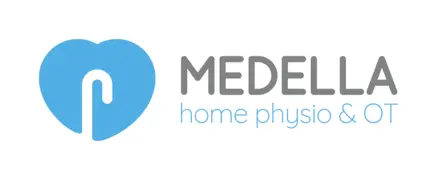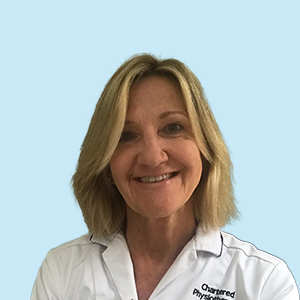Neurological Rehabilitation at Home
Living with a neurological condition like Parkinson’s, Multiple Sclerosis (MS), or a brain injury presents unique challenges. Unlike recovering from a simple injury, managing a neurological condition is often a journey that changes over time.
You may be finding that movement is becoming stiffer, energy levels are lower, or everyday tasks are taking longer than they used to. At Medella, we believe that with the right expert support delivered in your own home, you can maintain your independence and continue doing the things you love.
Looking for Stroke Recovery?
While our neuro team are experts in stroke care, we have a dedicated service page specifically for stroke survivors.
Home-Based Support for Progressive Neurological Conditions
Our team includes senior Neuro Physiotherapists and Occupational Therapists who specialise in disorders of the nervous system. We provide coordinated home-based rehabilitation for:
Parkinson’s Disease: Specialist home physiotherapy to tackle stiffness, “freezing” of gait, tremor, and the small, shuffling movements (bradykinesia) that increase fall risk.
Multiple Sclerosis (MS): Managing fatigue, maintaining muscle strength, and adapting daily routines as symptoms fluctuate.
Traumatic Brain Injury (TBI): Cognitive and physical rehabilitation to support a gradual return to daily life.
Motor Neurone Disease (MND): Compassionate, adaptive support to maximise independence and comfort for as long as possible.
Spinal Cord Injuries: Functional rehabilitation to improve mobility and safety at home.
A “Whole Person” Approach to Neurological Recovery
Neurological conditions rarely affect just one part of your life. That is why we provide a multi-disciplinary team. By combining Physiotherapy (movement) and Occupational Therapy (daily living skills), we treat the whole person, not just the diagnosis.
THE PHYSIOTHERAPY ROLE
Restoring Movement & Confidence
Our Neuro Physios understand how to retrain the brain and body to work together more efficiently.
- Gait & Balance: Reducing the risk of falls and improving walking confidence.
- Tone Management: Hands-on therapy to relieve spasticity and muscle stiffness.
- Strength & Amplitude: Targeted exercises to combat weakness and slow movements (bradykinesia).
- Vestibular Rehabilitation: Specialist support for dizziness and balance disorders.
THE OCCUPATIONAL THERAPY ROLE
Enabling Daily Living
Our Neuro OTs focus on practical strategies to help you manage your day-to-day life with less struggle.
- Fatigue Management: Teaching you how to conserve energy so you can do more of what matters.
- Cognitive Rehabilitation: Strategies for memory, planning, and concentration challenges.
- Upper Limb Therapy: Improving hand function for tasks like eating, dressing, and writing.
- Equipment & Adaptations: Expert advice on aids that keep you safe and independent at home.
Why Neurological Rehabilitation Works Best at Home
Travelling to a clinic can be exhausting, especially if you are managing fatigue or mobility issues. By seeing you at home, we save your energy for what matters: your therapy.
Rehabilitation is also most effective when it is relevant. We help you navigate your stairs, get in and out of your bed, and make a drink in your kitchen. This “real-world” practice builds confidence where you need it most.
Trusted by Families Across Hampshire, Dorset & Wiltshire
We are proud of the 5-star feedback we receive from families on Google. These independent reviews reflect our team’s commitment to helping loved ones regain mobility and independence through compassionate, professional care at home.
Meet Our Neurological Specialists
Our therapists bring an average of 18 years’ clinical experience to every home visit. View full team profiles →
Related Conditions
Stroke Recovery
View Stroke Rehab→
General Mobility Loss
View Elderly Rehab →
Dementia Safety
View Dementia Support →
Do I need a doctor’s referral?
No, you can contact us directly. However, if you have a complex neurological history, we may ask (with your permission) to see discharge letters or scan results to ensure we build the safest possible plan for you.
Can you help with progressive conditions like MS or Parkinson’s?
Absolutely. While we cannot “cure” a progressive condition, specialist therapy is vital for maintaining function. We focus on “maintenance and management”- keeping you strong, flexible, and independent for as long as possible to prevent deterioration.
Do I need both a Physio and an OT?
Not always, but they often work best together. We usually recommend an initial discussion to see which discipline you need most right now. Many of our clients start with one and bring in the other later as their needs change.

















